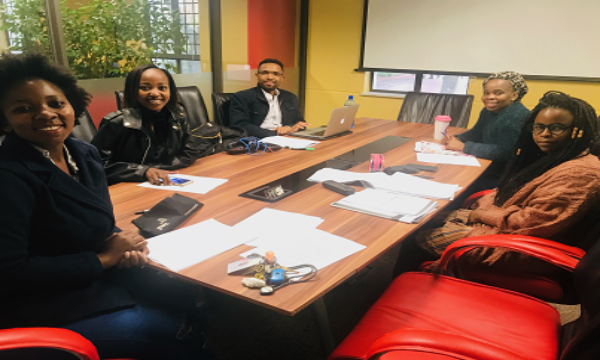
By Yanela Ndabula, PhD Candidate in the Department of Psychology
Writing is often described as lonely; Writing Circles can provide a community in which a cohort of postgraduate scholars engage and connect with each other and grow as early stage researchers.
Writing Circles are peer-led spaces where four to eight postgraduate scholars in cognate disciplines meet weekly or fortnightly to constructively review each other’s work. Students bring a piece of writing to be reviewed by the group. The text can be a section of a chapter, paper or story that they are working on. Lively discussions and exchange of ideas take place as the group supports each other.
Learning in Writing Circles happens in several ways. Firstly, scholars have the platform to talk about their research and in the process become aware of which concepts and theories they have fully grasped and which need further reading. Secondly, it offers them multiple perspectives which can be eye opening and helpful in the refining an idea. Thirdly, it develops an understanding of different styles of writing as well as the common mistakes made in academic writing.
Due to their peer-led nature, Writing Circles can be considered as the liminal space between the student and supervisor. In the circles, there is no hierarchy and instead supportive comments are used as the means to clarify each person’s contribution to knowledge. Writing Circles offer students the opportunity to claim mastery over their work, develop criticality, and learn the literacy practices of their field.
The Centre for Postgraduate Studies Writing Circles project has now been running for a few years. In an article by Oluwole et al (2018), Rhodes University students who were part of Writing Circles indicated as follows:
- It gave me the opportunity to place myself in the position of the audience when writing, to be coherent in ideas.
- Well, eventually you learn that nobody is ever really a writing expert. Facilitator had very good core knowledge of academic writing and was able to explain some concepts but every member was able to contribute some knowledge to the group in many ways.
- Whilst I find academic writing exceedingly difficult, thanks to the writing group sessions I attended. I came to enjoy it for a number of reasons. I became far more aware of my own writing style. Gradually I became less embarrassed about my style of writing. I also became more conscious of how I put words on paper. Actually, these writing groups were one of the reasons I have continued to pursue my PhD.
- I found the writing circle to be beneficial as a space for support during this lonely phase of thesis writing.
Apart from getting and giving feedback on each other’s writing, other tools and activities for dramatically improving one’s writing productivity are used. These include free writing, writing marathons, Pomodoros, conference paper presentations and performing forensic analyses of journals.
Writing Circle membership
The 2019 Writing Circles have already begun – and you are invited to join us. If you are interested in being part of these groups
Sign up here: https://goo.gl/forms/KAS5xGemPB9M9gD03
Watch this video to find out more: https://www.youtube.com/watch?v=fGPEMoxW6G0
